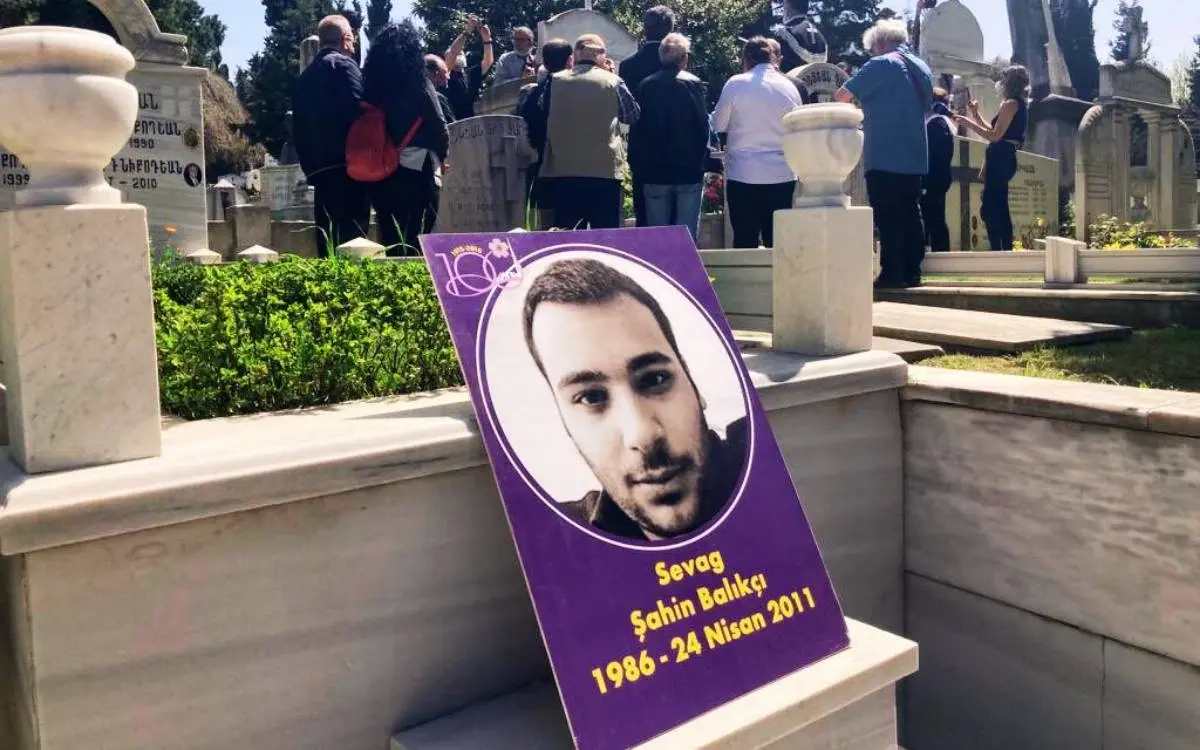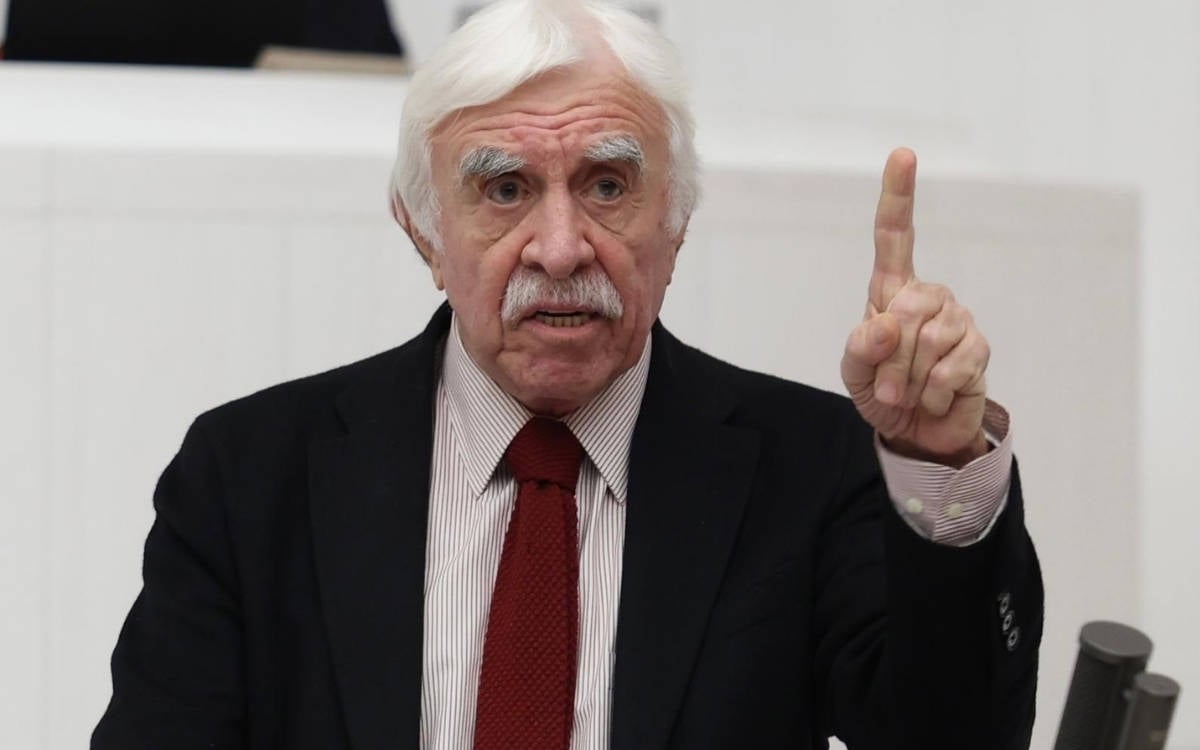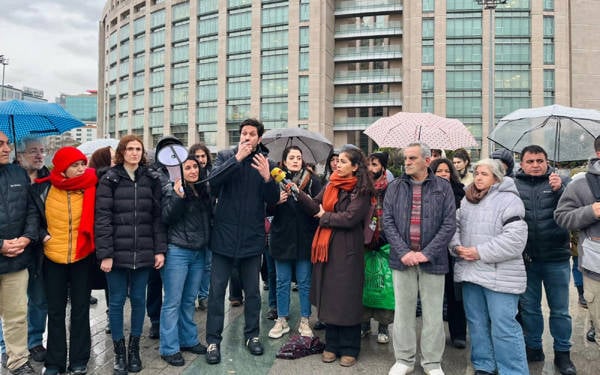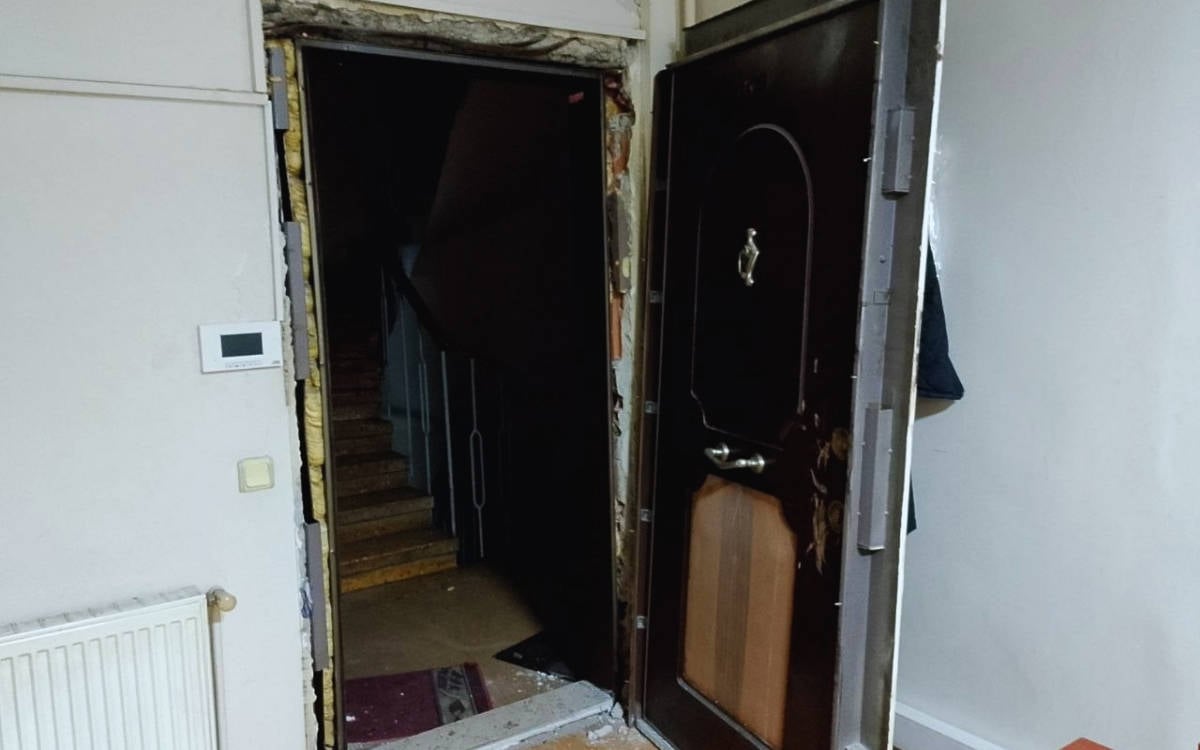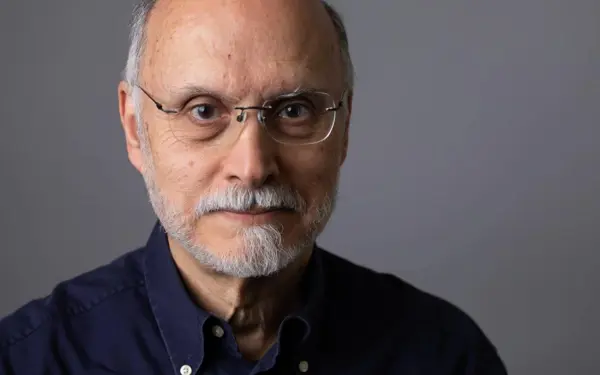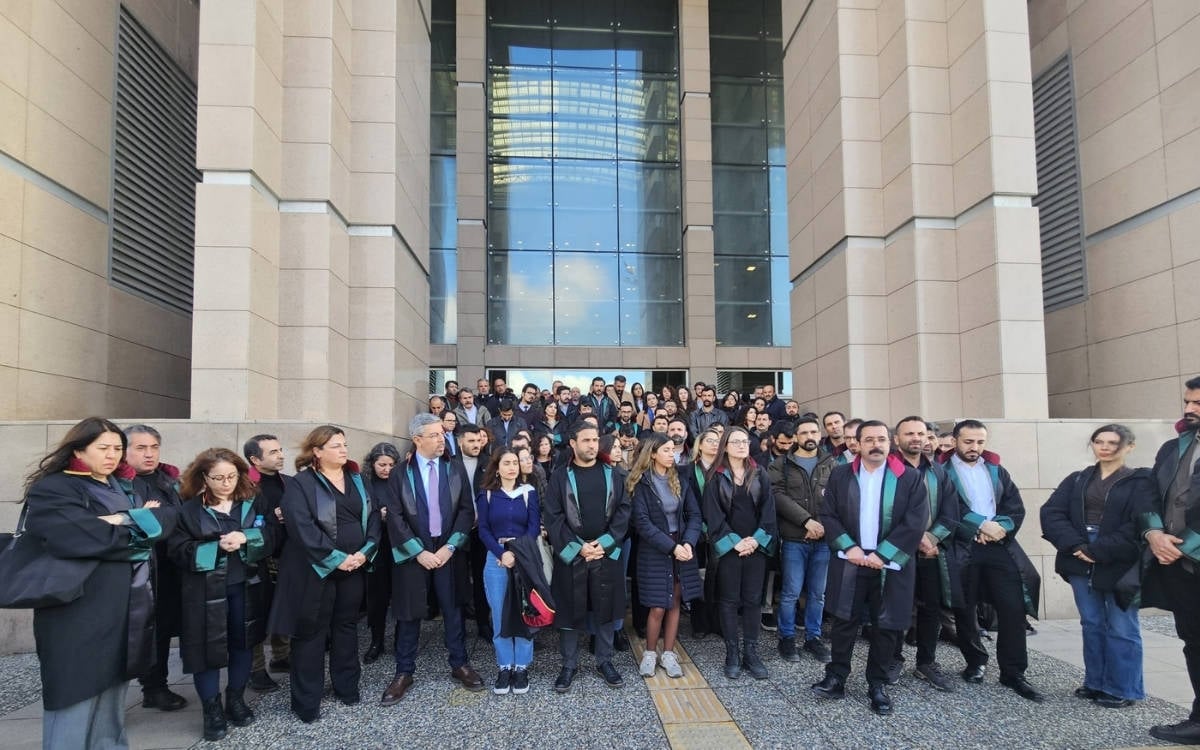This year marks the 109th anniversary of the Armenian Genocide.
Today, the grandchildren of Armenians who survived the genocide represent the fourth generation.
The legacy that the fourth generation will pass on to future generations determines the direction of facing the genocide.
We spoke with Aren (27) and Zepür (27), who were both born and raised in İstanbul and began their education in Armenian schools, about what it means to be a young Armenian in Turkey.
What does it mean to be a young Armenian in Turkey?
Aren: Being a young Armenian in Turkey comes with many challenges. I was born and raised in İstanbul. I attended Armenian schools until high school. Towards the end of my high school education, I began to realize certain things. I thought to myself: Wait a minute, as an Armenian in this country, sometimes I have to protect myself or even conceal my identity. Then memories of my childhood started to come back slowly. Like my mom asking me to call her "anne" instead of "mama" in public, or my grandmother asking me not to call her "yaya."
The reactions people give when they meet you can be strange; some approach you like an exotic fruit, while others bombard you with questions: When did you come from Armenia? Wasn't there a prep school in your country? Why are you taking exams here, and of course, do you believe in the genocide? We used to give funny answers to funny questions, like saying I chose to be here because my dad is very rich. Luckily, I had another Armenian friend in prep school.
Making friends with Kurds
When I started university, I naturally gravitated towards Kurds. I formed my circle of friends from Kurds because I could talk to them about these issues and because I knew they would protect me if something happened at school.
So being a young Armenian in Turkey teaches you life-saving tactics, like hiding your name when necessary, changing your language immediately to speak Armenian with your friends, and thus warning each other. So it's a bit of hiding, sometimes appearing openly, sometimes walking slowly on the water's surface without revealing yourself. Constantly sniffing the air and taking positions accordingly... Some find my name cool when they ask about its meaning; but if I think I might be in a risky situation, I say my name is in Farsi or Hebrew instead of Armenian.
"The language of pain"
Do you speak Armenian at home? Did you learn it yourself?
Yes, I do. My grandmother and my school taught me Armenian. My mom and dad know very little Armenian. My grandmother knows it very well because she went to an Armenian school in İstanbul. It's strange that my mom couldn't have the same chance; she went to Turkish schools in her hometown of Erzincan. My grandmother used to speak Armenian to us at home, so the first words that came out of our mouths were always Armenian. I remember times when she deliberately wouldn't answer a question in Turkish when I asked. Especially in April, she refused to speak Turkish due to her mourning. She once said, "I don't want to speak in the language of pain."
Would you have preferred Armenian to be spoken at home instead of Turkish?
I would have loved that because being able to speak your language actually strengthens your existence. But within our means, we couldn't do that. My brother and I also speak Armenian among ourselves; but sometimes I feel like I stumble in writing and reading. I would have loved for our daily conversations at home to be in Armenian. As you stop speaking and using the language, you also drift away from your culture. We can't understand the prayers or hymns when we go to church for holidays. This feels bad. Right now, there are probably at best around 30-40 thousand people in İstanbul who speak Armenian. The possibility of not being able to pass it on to the next generation is scary and sad. When you lose your language, you start to lose your culture, your church, your wedding and funeral rituals. There used to be efforts to preserve the Armenian language and culture in Turkey before 2015, but I can't find it anywhere now.
Military Service
Did you serve in the military?
I did paid military service; however, I faced extraordinary difficulties. My misfortune was that my military service coincided with April, the time of the genocide. Sevag Balıkçı's death in the military on April 24 was no coincidence. This death instilled great fear in us. Hrant [Dink] was killed in 2007, and four years later, just on the day of the genocide, we heard about Sevag's death. And we heard this news on Easter too. I was deeply saddened by the death of someone I didn't even know.
Did you encounter any difficulties in the military?
I had an incident in the military. A few days before April 24, they gathered us in one place. The commander asked if there was an imam among us. Three or four people stepped forward, and the commander asked them to explain the "martyrdom rank." I didn't want to listen and tried to slip away towards the back, where there were already people sitting. I lit my cigarette and started smoking. The commander chose one person out of the 300. Me. He kicked my foot, made me throw away the cigarette, and said, "Stand up," and asked, "Don't you want to be a martyr?" I broke into a sweat instantly.
Do I want to be a martyr or not? I look somewhere, I look up. I couldn't answer. When he shouted a second time, 150 people turned to look at me. I started sweating even more. A light bulb went off in my head at his third shout. I became dumbfounded because the closeness of the genocide history was already pushing me back. Without thinking, I suddenly said, "I can't be a martyr, sir." He asked, "What do you mean?" I said, "I'm Armenian, sir." There were only five days left until the end of my military service, two days until April 24. I hid for 20 days, and finally, I had to reveal myself to the 300 people. But then the commander stopped, looked at me, and hugged me. I thought it was over, that it was done. Then, in a very strange way, he said to me, "Didn't we defend the homeland together in the Ottoman era?" "Yes, sir, we did," I said.
"We didn't kill anyone"
After an hour or two passed, one of the soldiers said, "The commander is calling you, put on your camouflage." "Okay, take care, Aren," I said, the movie is starting now. He started asking me questions, how do you have your weddings, how do you bury your dead, is there such a thing as baptism? Then somehow, the conversation turned to 1915. He says it happened, he says they were killed, it was mutual. At that moment, I felt like saying this inside me: You killed my ancestors, but look, you couldn't kill enough, I'm still here. He started asking me about treasure, gold, and stuff. I just said I didn't know and brushed it off.
When they handed out the identification tags, everyone had already started to understand what was going on because everyone's tag had an "M" on it, and mine had an "H" indicating that I was a Christian. Three days before the end of my military service, I prayed every day, I broke out in cold sweat every day. I felt the need to call my parents every chance I got and reassure them that I was okay. Because I couldn't tell them what I was going through so they wouldn't worry. My military service ended, and as I left without looking back, thinking, "It's all over," the commander stopped me again. He came up to me, hugged me. As he hugged me, he whispered a sentence in my ear: "We didn't kill anyone, if we did, you wouldn't be here." "You're absolutely right," I said, quickly grabbed my bag, and left from there.
What does April 24 personally mean to you?
April 24 means many things to me. It's not just a single sentence or feeling that I can convey to you here. First and foremost, being in Turkey reminds me of anxiety and worry. For me, April 24 is still one of the most special days of the struggle to show our presence in Turkey. Maybe we can add January 19 to this, I don't know. Even in a period when the pressure on us is at its highest, we still come out and say that we are still here with our flesh, identity, language, and culture. We can at least commemorate our losses, our ancestors by lighting candles. But experiencing our grief and mourning in a crowded way, and expressing our demand for justice, is still prohibited. So, I think April 24 represents a never-ending mourning, which has lasted for 109 years now.
"The truth is singular and universal"
27-year-old Zepür, as a young woman of Armenian descent, said she feels relatively privileged, but she sometimes feels anxious because she is Armenian.
Zepür shared her and her family's story, as well as the significance of April 24 for her:
"The first language I learned was Armenian. When I started kindergarten at the age of four, I learned Turkish, and I didn't encounter any difficulties afterwards. I'm fluent in Turkish now. I continued my education at an Armenian school in high school. I guess I'm a bit lucky; I haven't encountered anything negative so far. On the contrary, my name attracted people's attention. My family didn't impose any restrictions or instructions on me about this either. Outside, I could comfortably call my mom 'mama' on the bus or in a taxi. If I have children in the future, I want to continue this tradition because I think imposing restrictions would create another fear. Unlike those who want to leave Turkey, I want to stay here. I believe we should maintain our existence here.
"April 24 is, of course, one of the most important topics in our lives. Just like the truth is singular and universal, what happened on April 24 is also one of those truths. You can't change the truth. There are things we are told, and we are not talking about a very distant past. Our stories and our pains are still fresh. These are not things to be forgotten, at least they deserve not to be forgotten. My mother is from Hatay, an Armenian from Antakya. For example, the story of my maternal side gives me a lot of strength.
Musa Dağ Resistance
"A true resistance, the Musa Dağ Resistance. This is a story of the majority of the villagers living at the foot of Mount Musa in Antakya, who chose to stay and resist in their homeland in 1915. Our elders, those who wanted to fight, went up the mountain. It's a fascinating story because I believe the mountain protected them. They took certain foods with them; wheat, meat, water. They made and ate keşkek, which is a very nutritious meal anyway. And this resistance ended in victory. I think we suffered the least losses there. Some of the remaining people were sent temporarily by ship to Port Saïd Harbor, Egypt. Then migrations began. They had to go to Lebanon, Syria, America, and various countries in Europe. This part is a bit sad, of course.
"My father is also an Armenian from Dersim. He has a trauma from 1938. My father remembers very clearly what was told in 1938, a forced migration to Kütahya by black trains. There are stories of returning after the situation calmed down; but, of course, they didn't dare to settle in Dersim and returned to Elazığ instead. Their traumas are passed on to us, of course. This is very sad. I said I was lucky, that people found my name interesting; but sometimes being curious is not innocent. I can feel it. You just know and feel, right, that feeling. We've already lost enough, some of our families completely, and for some, most of their families have been wiped off the face of the earth. I hope we don't suffer any more losses and stay together."
(TY/VK)






